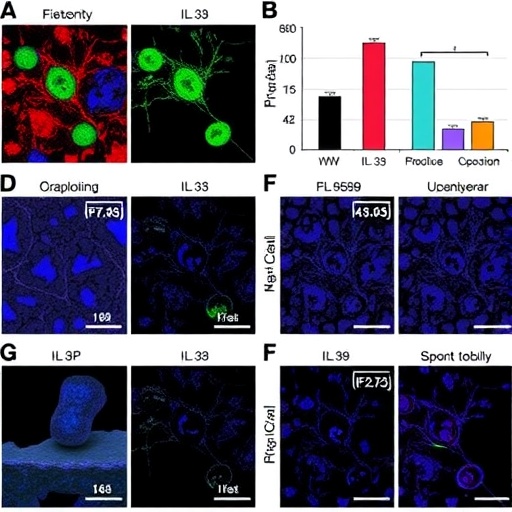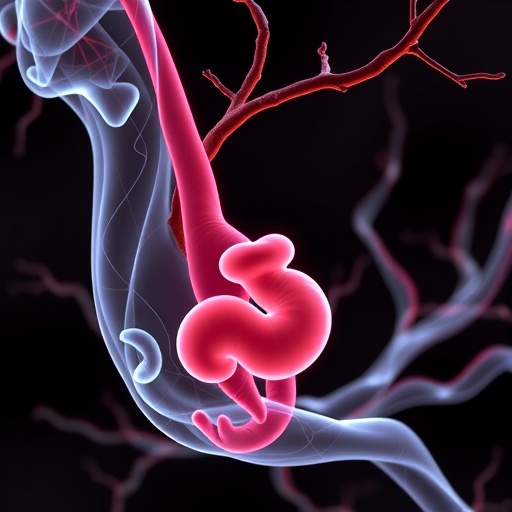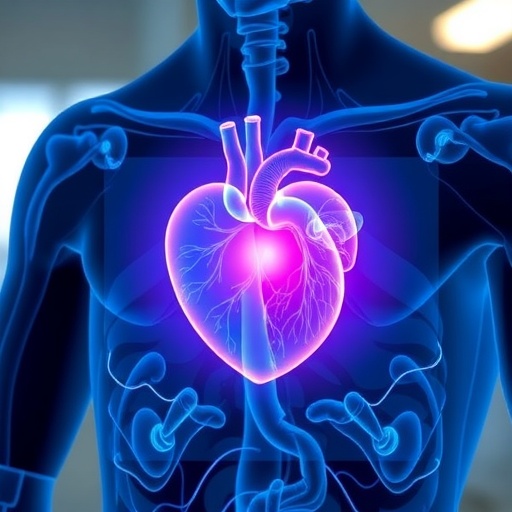
Recent investigations into the impact of repetitive mild traumatic brain injuries (mTBIs) on cognitive functions have unveiled alarming insights. Researchers from a comprehensive study spearheaded by Jia Z.X., Guo M.T., and Li M.M. have shed light on the role of interleukin-33 (IL-33) in the brain, particularly its decrease in levels following mTBI, which appears to play a significant role in cognitive impairment. Such findings are particularly critical given the growing concern surrounding brain injuries, especially among military personnel and athletes.
The research unveiled that IL-33, a member of the IL-1 cytokine family, is typically found in the central nervous system and is known for its neuroprotective qualities. It plays a pivotal role in various cellular processes, particularly inflammation and immune responses. The decrease of IL-33 following mTBI suggests a disruptive cascade that culminates in impaired cognitive abilities. This revelation is of utmost importance, as it can pave the way toward new therapeutic strategies to mitigate cognitive decline post-injury.
In a comprehensive analysis, the researchers meticulously noted that cognitive impairments are often linked to neuroinflammatory responses triggered by brain injuries. The study illustrated how the reduction of IL-33 contributes to a significant compromise in microglial function. Microglia are the primary immune cells of the central nervous system, and their ability to phagocytose, or engulf, damaged cells and debris is crucial for maintaining brain homeostasis. The inhibition of this vital process due to decreased levels of IL-33 underscores a potentially reversible aspect of cognitive decline.
The implications of this research extend beyond just the molecular understanding of mTBI. Given the alarming statistics related to cognitive impairment among individuals with a history of brain injuries, particularly in combat scenarios and high-impact sports, these findings could revolutionize how we approach recovery and prevention strategies. The study posits that enhancing IL-33 levels or targeting its signaling pathways could emerge as a promising therapeutic avenue to improve microglial function and cognitive outcomes.
This research has far-reaching consequences for treating cognitive impairments stemming from brain injuries. The recognition that the decrease in IL-33 inhibits microglial phagocytosis introduces a new dimension to understanding neural recovery and neuroprotection. Targeting the IL-33 pathway might not only aid in restoring cognitive function but also reinforce the brain’s resilience against future injuries. This line of inquiry could lead to innovative treatment modalities that prioritize prevention and rehabilitation, thereby enhancing the quality of life for those affected.
Moreover, the findings could spark interest in the development of biomarkers that track IL-33 levels as a predictive measure for cognitive health in individuals with repetitive mTBI. Such biomarkers could facilitate early interventions and personalized medicine approaches in treating those at risk of cognitive decline. The development of pharmacological agents that can mimic or enhance the action of IL-33 presents an exciting opportunity for advancing therapeutic options.
As we delve deeper into the relationship between inflammation and cognitive functions, the role of microglia surfaces as a critical focal point. Microglia are not just passive responders but active participants in the neural landscape, orchestrating responses to injury and facilitating repair mechanisms. The study’s conclusions provoke further inquiry into how we can modulate microglial activity to better support neural recovery, particularly in the wake of traumatic injuries.
While the relationship between cytokines and brain health is increasingly recognized, the nuances uncovered in this research may set a precedent for future studies in neuroimmunology. Researchers are now tasked with exploring other inflammatory markers that could bear on cognitive outcomes following brain injuries. As our understanding deepens, we may soon find ourselves at the forefront of an evolving paradigm that highlights the symbiotic relationship between inflammation and cognitive health.
In conclusion, the findings presented by Jia Z.X. and colleagues highlight a critical intersection of immunology and neuroscience that could redefine interventions for cognitive impairments associated with mTBIs. As researchers work to unravel these complex interactions, the potential to create effective, targeted therapies increases, offering hope to those affected by the debilitating challenges of cognitive decline resulting from traumatic brain injury.
Ongoing studies will undoubtedly seek to explore the implications of enhancing IL-33 levels and its resultant effects on cognitive functions comprehensively. The ultimate goal of such research is not only to delineate the pathways that lead to cognitive impairments but also to develop evidence-based interventions that can significantly enhance recovery processes. As future research unfolds, the anticipation builds regarding the innovative strategies that might emerge from this compelling narrative surrounding IL-33 in a post-injury recovery landscape.
Understanding the detrimental effects of mTBI on cognitive health is imperative as it will carve the path for preventive measures that can be instituted within high-risk populations. Given the intricate relationship between cytokine levels, neuroinflammation, and cognitive functions, further exploration of this domain promises to enrich our understanding and establish more robust frameworks for managing brain health in individuals prone to injuries.
In summary, the devastating effects of repetitive mild traumatic brain injuries on cognitive functions can no longer be overlooked. The recent research emphasizing the role of decreasing IL-33 levels provides critical insight into not only how brain injuries alter cognitive capabilities but opens up pathways for innovative therapeutic interventions. The future now lies in harnessing this knowledge to cultivate a safer and more resilient neuronal environment.
From soldiers on the battlefield to athletes on the field, the implications of these findings resonate deeply, touching countless lives and carrying the potential for significant shifts in medical and clinical practices surrounding brain injuries. The journey from understanding the underlying mechanisms of cognitive decline to implementing effective therapeutic strategies has just begun.
Subject of Research: The impact of decreased IL-33 levels on cognitive impairment following repetitive mild traumatic brain injuries.
Article Title: Decreased IL-33 in the brain following repetitive mild traumatic brain injury contributes to cognitive impairment by inhibiting microglial phagocytosis.
Article References:
Jia, ZX., Guo, MT., Li, MM. et al. Decreased IL-33 in the brain following repetitive mild traumatic brain injury contributes to cognitive impairment by inhibiting microglial phagocytosis.
Military Med Res 12, 46 (2025). https://doi.org/10.1186/s40779-025-00631-1
Image Credits: AI Generated
DOI: 10.1186/s40779-025-00631-1
Keywords: IL-33, mild traumatic brain injury, cognitive impairment, microglial phagocytosis, neuroinflammation.
Tags: athlete cognitive impairmentcentral nervous system immune responsescognitive function and brain injuriescytokine family and brain healthinterleukin-33 role in cognitionmicroglia and brain injury recoverymicroglial phagocytosis impairmentmilitary personnel brain injuriesneuroinflammation and cognitive declineneuroprotective qualities of IL-33repetitive mild traumatic brain injuriestherapeutic strategies for brain injuries




